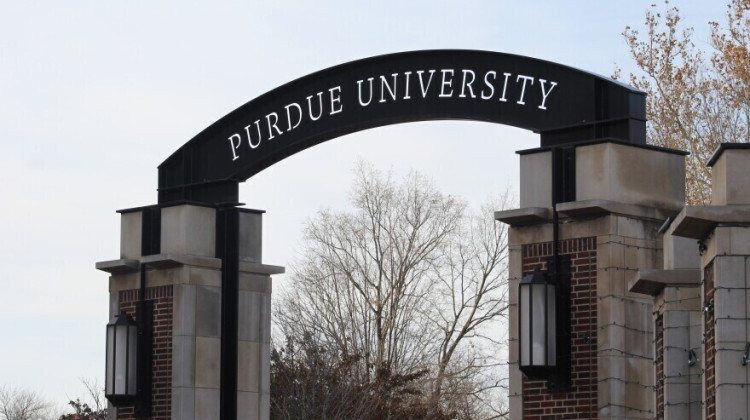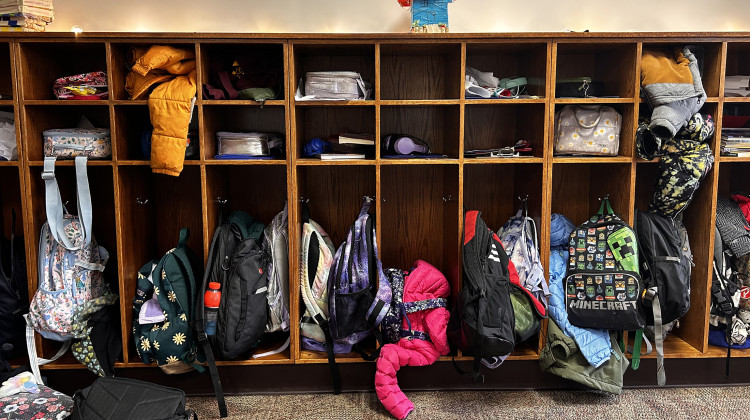
Indiana teachers are now required to complete 80 hours of professional development on concepts of the science of reading, plus a written exam, as part of a new effort to address the state's decline in elementary student's reading skills.
PixabayTJ Schneider applied for his first teacher’s license in 2001. Back then, educating high school students with disabilities was his chosen path.
About a decade later, a supportive principal told him to consider teaching mathematics. Schneider earned a math license and has taught at Lakeland High School in LaGrange ever since.
When he received an email recently about a requirement to become qualified in a new way of teaching literacy he ignored it.
“I just didn't even read it because it didn't pertain to me,” Schneider said.
Then he did a little digging and was surprised to find out – and even as a high school math teacher – he’s now required to become proficient in this literacy instruction because he still holds a license in special education.
Schneider’s situation is an example of frustrations Indiana teachers are speaking out about after the state Department of Education unveiled its literacy training plan last week for early childhood, elementary and special education educators. It is all part of state leaders' approach to quickly address declining reading skills.
The Indiana State Teachers Association released a statement Friday demanding IDOE provide more and clear details of how educators are affected by the requirement. Some of the concerns include not enough time to complete the training and disregard for current teachers’ experience.
All current teachers who hold a Pre-K to 6th grade or special education license, every single one in the state, must learn how to use the science of reading — a body of scientific research about how children learn phonemic awareness, phonics, vocabulary, fluency and comprehension.
Teachers are now required to complete 80 hours of professional development on concepts of the science of reading, plus a written exam. And without it, an educator can not renew their teaching license.
Parts of the plan were met with swift feedback from many of the state’s teachers and organized pushback by Indiana’s largest teachers’ union because of confusion and stress stemming from the rollout. One concern is educators won’t be compensated fairly for their time spent on training.
Following last week’s events, ISTA is now calling on teachers to attend next month’s State Board of Education meeting to voice their concerns about the required endorsement.
In response to WFYI questions about the literacy requirement a spokeswoman for the department pointed to a memo from earlier this week that addresses “misleading information” circulating on social media and details requirements for teachers.
“Our team has been working with educators to navigate individual answers to very specific questions and will continue to do so,” Rebecca Estes, IDOE’s assistant secretary for educator talent, said in a scripted webinar Thursday.
What’s happening with Indiana teacher licenses?
The new literacy requirements were set by state law in 2023 and then tweaked this legislative session to ensure that targeted teachers renewing their license must also be trained in the science of reading.
New teachers going for an initial license in the targeted areas will need to get this endorsement beginning in July 2025.
Future teachers must participate in a college or another preparatory program aligned with the science of reading then complete a licensure test, according to IDOE. Teacher preparation programs must include a curriculum starting this summer that’s focused on the science of reading.
Typically, teachers renew their license every five or 10 years depending on the license.
Teachers who hold a “life” license, which do not have an expiration date or renewal requirements, are not required to complete the training. It’s voluntary, according to IDOE.
Educators who complete the requirement can receive supplemental pay from their school district, according to state law.
Educators, like Schneider, who have added another license not in literacy and teach at the middle or high school level are still required to complete training and the exam regardless of any additions to their license, Estes said.
Current teachers, such as Schneider, who do not yet need to renew their license have until on or after July of 2027 or until they move to renew their teaching license to complete the endorsement and take a licensure test.
Earlier this month, IDOE told educators that a third-party provider, Keys to Literacy, will offer a professional development course tied to this literacy move for the state.
The state-funded course is free for educators through June 2025. The state’s licensure exam, also required for educators, is funded through a voucher after an educator completes the 80 hours of professional development.
Teachers will receive a $1,200 stipend if they complete the training and the exam through Keys to Literacy.
Teachers can also get credit for other training they have already done to meet the 80-hour requirement.
During last week’s webinar, Estes said IDOE is also working to expand approved professional development options.
This includes 25 hours of science of reading training from the Indiana Learning Lab. Teachers can also receive a stipend for the lab’s training, according to IDOE.
Pushback on teacher license shifts
Shortly after IDOE shared its guidance on the literacy endorsement, the Indiana State Teachers’ Association began to get questions from teachers due to growing “anxiety,” said Keith Gambill, president of the organization.
Gambill said ISTA understands the importance of children learning to read but the state’s handling of this requirement could further exacerbate the problem of retaining teachers.
“The way in which this is being done and what is being expected has just been kind of the last straw for many of our teachers,” Gambill said.
The sole Democrat candidate for governor, Jennifer McCormick, is also among the critics of these requirements. McCormick, the former Indiana Superintendent of Public Instruction said IDOE’s rollout “creates frustration and confusion” in the education community.
Gambill and ISTA met with education department leaders Wednesday to discuss concerns surrounding the requirement’s introduction. The union still has questions about how training teachers have already completed applies to this endorsement, he said.
A move to the science of reading
Indiana has moved rapidly to a new way of teaching the state’s children how to read.
The Hoosier state has joined more than 30 states as they seek to have educators utilize the science of reading, which backs instruction of phonics and phonemic awareness, which is the ability to identify individual sounds in a whole word.
Part of this change involves school districts and charter schools developing and adopting curriculum aligned with the science of reading by next school year.
Schneider said he fully supports the science of reading for literacy teachers but it’s an overreach for educators in his situation. He signed up for a spot to complete his literacy endorsement this summer, which required some restructuring of his and his colleagues' planning for next school year, he said.
During his program this summer, Schneider will be in front of a screen from 8 a.m. to 3:30 p.m. to learn a skill that he has no plans to ever teach to the state’s children.
Schneider still hopes for a waiver from IDOE because of his situation. There’s no mention of waivers in IDOE’s plan or state law.
“I've got some real hope that they're going to look at this before teachers really start committing to the time,” Schneider said. “Fingers crossed that we're going to make a little progress.”
Rachel Fradette is the WFYI Statehouse education reporter. Contact Rachel at rfradette@wfyi.org.
 DONATE
DONATE






 Support WFYI. We can't do it without you.
Support WFYI. We can't do it without you.